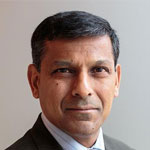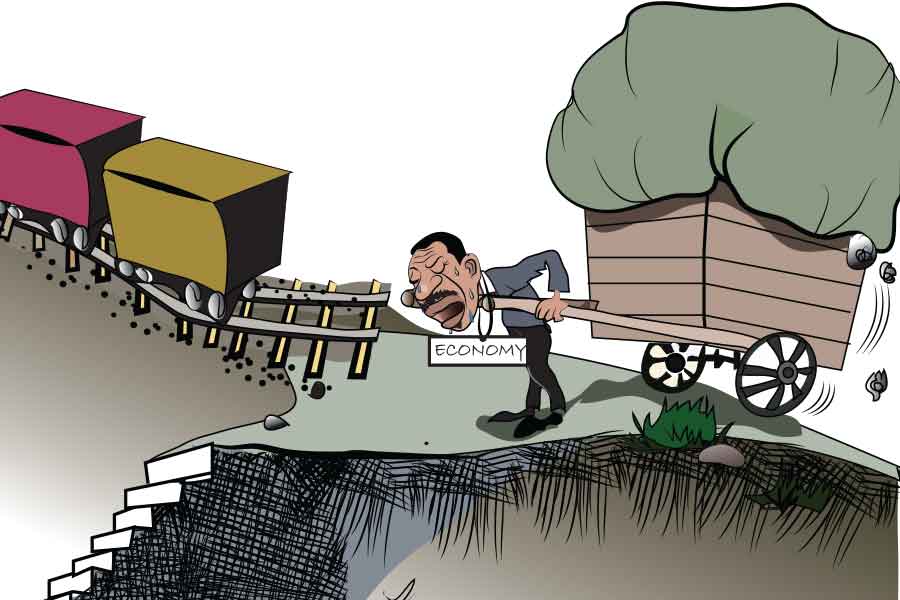
Feb 5 , 2022
By Raghuram G. Rajan
Smart economic policymaking invariably requires trading off some pain today for greater future gains. But this is a difficult proposition politically, especially in democracies. It is always easier for elected leaders to indulge their constituents immediately, on the hope that the bill will not arrive while they are still in office. Moreover, those who bear the pain caused by a policy are not necessarily those who will gain from it.
That is why today’s more advanced economies created mechanisms that allow them to make hard choices when necessary. Chief among these are independent central banks and mandated limits on budget deficits. Importantly, political parties reached a consensus to establish and back these mechanisms irrespective of their own immediate political priorities. One reason why many emerging markets have swung from crisis to crisis is that they failed to achieve such consensus. But recent history shows that developed economies, too, are becoming less tolerant of pain, perhaps because their own political consensus has eroded.
Financial markets have become volatile once again, owing to fears that the US Federal Reserve will have to tighten its monetary policy significantly to control inflation. But many investors still hope that the Fed will go easy if asset prices start to fall substantially. If the Fed proves them right, it will become that much harder to normalize financial conditions in the future.
Investors’ hope that the Fed will prolong the party is not baseless. In late 1996, Fed Chair Alan Greenspan warned of financial markets’ “irrational exuberance.” But the markets shrugged off the warning and were proved correct. Perhaps chastened by the harsh political reaction to Greenspan’s speech, the Fed did nothing. And when the stock market eventually crashed in 2000, the Fed cut rates, ensuring that the recession was mild.
In a testimony to the congressional Joint Economic Committee the previous year, Greenspan argued that while the Fed could not prevent “the inevitable economic hangover” from an asset-price boom, it could “mitigate the fallout when it occurs and, hopefully, ease the transition to the next expansion.”
The Fed thus assured traders and bankers that if they collectively gambled on similar assets, it would not limit the upside, but it would limit the downside if their bets turned bad. Subsequent Fed interventions have entrenched such beliefs, making it even harder for the Fed to rein in financial markets with modest moves. And now that much more tightening and consequent pain may be needed, a consensus in favour of it might be harder to achieve.
Fiscal policy is also guilty of peddling supposedly painless economic measures. Most would agree that the pandemic created a need for targeted spending (through extended, generous unemployment benefits, for example) to shield the hardest-hit households. But, in the event, the spending was anything but targeted. The US Congress passed multi-trillion-dollar bills offering something for everyone.
The Paycheck Protection Program (PPP), for example, provided 800 billion dollars in grants (effectively) for small businesses across the board. A new study from MIT’s David Autor and his colleagues estimates that the program helped preserve two to three million job-years of employment over 14 months, at a stupendous cost of 170,000 dollars 257,000 dollars a job-year.
Worse, only 23-34pc of this money went directly to workers who would otherwise have lost their jobs. The balance went to creditors, business owners, and shareholders. All told, estimated three-quarters of PPP benefits went to the top one-fifth of earners.
Of course, the program may have saved some firms that otherwise would have collapsed. But at what cost? While capitalists anticipate profits, they also sign up for possible failure. Moreover, many small businesses are tiny operations without much organizational capital.
If a small bakery had to close, the economic fallout would have been mitigated by the enhanced unemployment insurance. And if it had a loyal clientele, it could restart after the pandemic, perhaps with a little help from a bank.
The standard line is that the unconstrained spending was driven by a sense that unprecedented times called for unprecedented measures. In fact, it was the response to the 2008 global financial crisis that broke the previous consensus for more prudent policies. Lasting public resentment that Wall Street had been helped more than Main Street motivated politicians in both major parties to spend with abandon when the pandemic hit. But targeted unemployment benefits were associated with the Democrats, leaving Republicans seeking wins for their own constituencies.
Who better to support than small businesses?
While political fractures were driving up untargeted spending, budget hawks were nowhere to be found: Their voices had been steadily drowned out by economists. In addition to the cranks who show up periodically to advocate ostensibly free lunches through money-financed spending, a growing chorus of mainstream economists had been arguing that prevailing low-interest rates gave developed countries significantly more room to expand fiscal deficits.
Politicians who were eager to justify their policies ignored these economists’ caveats – that spending had to be sensible, and that interest rates had to stay low. Only the headline message mattered, and anyone suggesting otherwise was dismissed as a hair-shirt fanatic.
Historically, it has been the Fed’s job to take away the monetary punch bowl before the party gets frenzied, and Congress’s job to be prudent about fiscal deficits and debt. But the Fed’s desire to spare the market from pain has driven more risk-taking and reinforced expectations of further interventions.
The Fed’s actions have also added to the pressure on Congress to do its bit for Main Street, which in turn has led to inflation and a belief that the Fed will back off from raising rates.
All of this makes a return to the previous consensus more difficult. When the Fed does raise rates significantly, the government’s costs of servicing the debt from past spending will limit future spending, including on policies to reduce inequality (which has fueled political fragmentation), combat future emergencies, and tackle climate change.
Every economy has a limited reservoir of policy credibility and resources, which are best used to mitigate genuine economic distress, not to shield those who can bear some pain. If everyone wants free lunch, the bill eventually will be paid by those least able to afford it. Emerging-market economies have had to learn this the hard way. Developed countries may have to learn it again.
PUBLISHED ON
Feb 05,2022 [ VOL
22 , NO
1136]


Radar | Jan 16,2021

Fortune News | Dec 11,2021

Viewpoints | Aug 29,2020

Commentaries | Feb 26,2022

My Opinion | Jan 23,2021


Commentaries | Oct 01,2022

Commentaries | Nov 27,2018

Fortune News | Feb 05,2022

Radar | Jul 30,2022

My Opinion | 131674 Views | Aug 14,2021

My Opinion | 128040 Views | Aug 21,2021

My Opinion | 126002 Views | Sep 10,2021

My Opinion | 123625 Views | Aug 07,2021

Dec 22 , 2024 . By TIZITA SHEWAFERAW
Charged with transforming colossal state-owned enterprises into modern and competitiv...

Aug 18 , 2024 . By AKSAH ITALO
Although predictable Yonas Zerihun's job in the ride-hailing service is not immune to...

Jul 28 , 2024 . By TIZITA SHEWAFERAW
Unhabitual, perhaps too many, Samuel Gebreyohannes, 38, used to occasionally enjoy a couple of beers at breakfast. However, he recently swit...

Jul 13 , 2024 . By AKSAH ITALO
Investors who rely on tractors, trucks, and field vehicles for commuting, transporting commodities, and f...

Jun 28 , 2025
Meseret Damtie, the assertive auditor general, has never been shy about naming names...

Jun 21 , 2025
A well-worn adage says, “Budget is not destiny, but it is direction.” Examining t...

Jun 14 , 2025
Yet again, the Horn of Africa is bracing for trouble. A region already frayed by wars...

Jun 7 , 2025
Few promises shine brighter in Addis Abeba than the pledge of a roof for every family...

Jun 29 , 2025
Addis Abeba's first rains have coincided with a sweeping rise in private school tuition, prompting the city's education...

Jun 29 , 2025 . By BEZAWIT HULUAGER
Central Bank Governor Mamo Mihretu claimed a bold reconfiguration of monetary policy...

Jun 29 , 2025 . By BEZAWIT HULUAGER
The federal government is betting on a sweeping overhaul of the driver licensing regi...

Jun 29 , 2025 . By NAHOM AYELE
Gadaa Bank has listed 1.2 million shares on the Ethiopian Securities Exchange (ESX),...